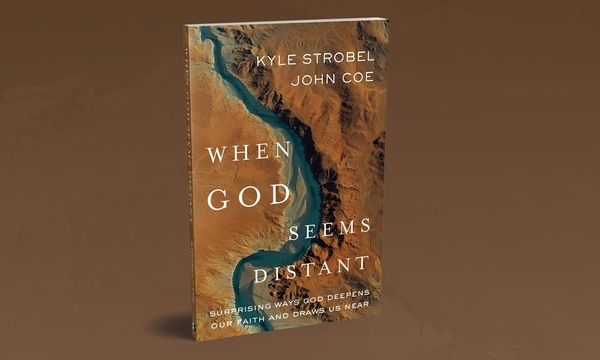A recent cover article for Christianity Today is devoted to “The Gleaner’s Edge” by business professors Bruce Baker and Tom Parks. They did an outstanding job showing “the modern-day power of an Old Testament practice to transform how we do business” (p. 29).
Baker and Parks correctly explain that the timeless “gleaning commandments reflect God‘s desire for people of means to...see the poor in new ways and to create opportunities for the marginalized to be productive and included in work communities” (p. 30), which has a transformative effect not only on the poor but on the businesses and communities. Importantly, Baker and Parks explain that the spirit of gleaning practices in ancient Israel goes way beyond mere charity or food donations (which are a fine place to start, whether through generous monetary donations, maintaining food pantries, etc.). The gleaning practices are also about “the dignity of work and the transformational role of practicing business to bring peace and welfare to all” (p. 31).
For example, TengoInternet in Austin, TX, built some extra office spaces and deliberately set them aside for nonprofits to work without rent or supervision. Square Peg Development in Seattle, WA, re-envisioned itself as a construction company that invites people from the margins, hiring workers with a history of homelessness, addiction, and criminal records. I also know of a laundromat in Mission Viejo, CA, that cleans interviewing outfits free-of-charge for unemployed job-hunters. Such initiatives can transform a business into “a community of people who show hospitality and empathy by creating opportunities for those on the margins to engage and flourish” (p. 32).
These are the kinds of creative applications to which God calls us through his Torah. The provisions for gleaning are stipulated in Leviticus and Deuteronomy (Lev. 19:9–10; 23:22; Deut. 24:19). For example, “And when you reap the harvest of your land, you shall not reap your field right up to its edge, nor shall you gather the gleanings after your harvest. You shall leave them for the poor and for the sojourner: I am the Lord your God” (Lev 23:22; ESV). The actual practices and deep principles of gleaning also dominate the social scene between Ruth and Boaz in the story of Ruth.
Gleaning was a way for widows, orphans and sojourners in ancient Israel to retain their dignity by having to work hard for their own sustenance. It required that the reapers intentionally neglect some of the produce on the edges of their fields. This was a welfare system that God contextualized for ancient Israel’s agro-pastoral economy, but one could not assume that everyone upheld the practice, especially during the time of the judges (cf. Judg. 21:25; Ruth 2:9, 15, 22). This is why Ruth, who was a poor widow from Moab, politely makes a request to glean, and she hopes for a favorable answer from a generous landowner (Ruth 2:2, 7). While some ancient Near Eastern peoples would leave a portion of their crops unharvested as an offering to local fertility deities, the Israelites were to do so as an expression of loving their neighbor (Lev. 19:9-10, 18) and treating the vulnerable with justice (Deut. 24:17–25:19) in order that God may bless their work (Deut. 24:19).[1]
It’s important to add that Boaz, in Ruth 2, did not merely follow the letter of the law by doing some kind of “minimum requirement” for Bethlehem’s gleaners. Rather, he went above and beyond the covenant instructions (see especially Ruth 2:8-9, 12, 14-17, 21; etc.) by embodying God’s revealed character and deliberately pursuing trajectories for the widows that were rooted in the values of the Torah, even when it presented risks to his own profits, investments or reputation. Boaz’s Torah-filled approach to ethics not only blessed the formerly marginalized widows but also blessed Boaz’s fields, family and future (see Ruth 4).
Boaz’s heart and his hermeneutic can inspire us to explore regularly and creatively how to care for the marginalized around us and how to help them flourish in society. Whether we are business-owners who can create workspaces for the marginalized (like the examples offered above), we are homeowners who can offer our properties to needy tenants, or even if we are citizens who can help the homeless or migrants in our neighborhoods, we must choose to stay cognizant of the vulnerable people who are around us. We cannot practice gleaning today unless we are intentionally paying attention to the otherwise invisible people in our midst. The key is to engage with them compassionately, bless them through words of encouragement, and invite them into our private, work, and community spaces where we can treat them as equals and dignify them with integrational initiatives (Boaz does all of these things in Ruth 2:8-9, 12, 14-17, 21).
All of this may create some social discomfort for us through others’ expressed disapproval, and it may even cost us some capital and affect our bottom lines, but it is the kind of “torahful” living to which God calls us. We should not assume that the gleaning passages are calling us merely to charitable giving. It is too easy for many of us to give money/donations and feel like we can check off this “obligation” to the poor. The gleaning practices in the Torah were given to illustrate how Israelites can show love to their neighbors (including foreigners), and these same passages can inspire us by revealing deep principles for holistic engagement with others so that lives can be changed and societies can be transformed.
Notes
[1] Paragraph adapted from K. C. Way, Judges and Ruth (Grand Rapids: Baker, 2016), pp. 194-195.
 Biola University
Biola University
.jpg)


